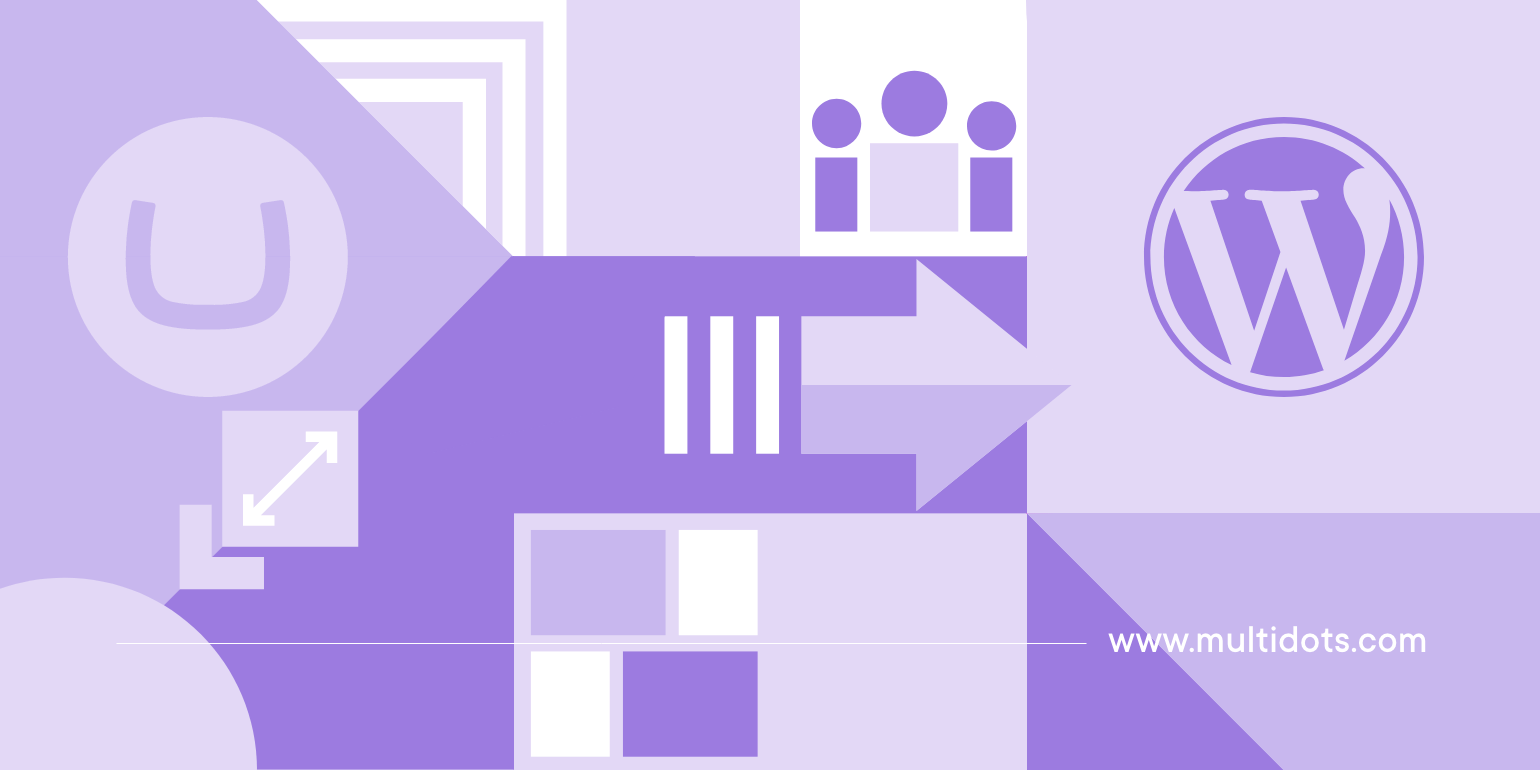Table of Contents
Umbraco, a popular content management system (CMS) built on Microsoft’s .NET framework, is lauded for its flexibility, strong security features, and ability to handle complex content management requirements.
However, despite its advantages, users often encounter challenges such as a steep learning curve, limited templates and themes, and smaller community support compared to other platforms.
Businesses and enterprises that have built their platforms on Umbraco often desire a CMS with an intuitive interface that allows for easier extensibility to incorporate more features with global community support.
This is where WordPress shines as an alternative.
In this article, discover the top seven compelling reasons why transitioning to WordPress from Umbraco could significantly benefit businesses and enterprises. Uncover the key advantages that make WordPress the superior choice for enhancing online presence and achieving business goals.
1. User-friendly interface
One of the standout features of WordPress that attracts businesses and enterprises is its user-friendly interface. Unlike Umbraco, which often requires a more technical understanding due to its .NET framework and a more complex content management structure, WordPress boasts an intuitive dashboard that makes website management straightforward for users of all skill levels.
For enterprises, the ease of use translates into efficiency and cost-effectiveness. Content creators can publish posts, add pages, or update their site’s appearance with minimal effort, allowing for faster response times to market changes or content updates.
The simplicity of WordPress’s interface reduces the dependency on IT professionals for everyday tasks, enabling a more agile content strategy.
On the other hand, Umbraco’s back-end, while powerful, can be daunting for users unfamiliar with its environment. WordPress, on the other hand, is designed with a focus on usability, featuring a WYSIWYG (What You See Is What You Get) editor and customizable menus that make navigation and content creation a breeze.
2. Extensive Theme and Plugin Ecosystem
The extensive theme and plugin ecosystem of WordPress helps users to easily customize and extend the functionality of their websites without deep coding knowledge. Businesses and enterprises migrating from Umbraco can choose from thousands of free and premium customizable themes available to give their website a uniquely aesthetic appearance.
Furthermore, the vast array of plugins enables the addition of complex functionalities ranging from SEO to e-commerce capabilities, social media integration, and beyond.
For businesses and enterprises, this means the ability to rapidly adapt and evolve their online presence to meet changing market demands or business objectives.
Comparatively, Umbraco also offers a degree of flexibility through its packages (Umbraco’s equivalent to plugins) and themes. However, the scale and variety found in WordPress’s ecosystem are unmatched.
3. Active Community and Support Resources
The WordPress community is one of the largest and most active in the world of CMS platforms, offering an extensive range of forums, blogs, online tutorials, and meetups that provide invaluable assistance and learning opportunities.
Consequently, WordPress users can easily find comprehensive solutions to their personalized problems, discuss best practices to get the most out of their website, and keep up with the latest updates and trends.
Whether it’s troubleshooting a plugin issue or seeking advice on website optimization, a community member can likely offer insights or a solution, even for businesses and enterprises. This contrasts with Umbraco, where the community, though knowledgeable and helpful, is smaller and might provide a different breadth of support and resources.
Moreover, WordPress users benefit from a vast documentation repository, including official guides, codex, and developer resources, catering to users of all skill levels. The availability of such resources reduces downtime and accelerates the learning curve, enabling businesses to maintain and enhance their online presence more efficiently.
4. Scalable and Flexible
WordPress is renowned for its scalability and flexibility, making it an ideal choice for businesses and enterprises at any stage of growth. Unlike Umbraco, which, while powerful, can sometimes require more complex development work to scale or customize extensively, WordPress offers a more straightforward path to scaling up or down as business needs change.
This is due in part to its extensive theme and plugin ecosystem, which allows for easy addition of new features and functionalities without the need for extensive coding.
For businesses, this scalability means that WordPress can support their online presence from startup to enterprise level without the need for migrating to another platform as they grow. This ease of scaling can save time and resources.
Additionally, WordPress’s flexibility allows businesses to tailor their sites to their specific needs, whether that’s integrating with third-party services, customizing workflows, or creating a unique user experience.
Comparatively, Umbraco does offer a high degree of customization and flexibility, especially for those with .NET expertise. However, achieving the same level of customization and scalability in Umbraco can often require more technical skill and development time, which might not be ideal for all businesses.
5. Out-of-box SEO Capabilities
WordPress is widely acclaimed for its superior out-of-box SEO capabilities, a crucial advantage for businesses and enterprises focusing on enhancing their online visibility. The platform is designed with SEO in mind, offering features such as clean permalink structures, easy content categorization, and automatic generation of meta tags.
These foundational SEO features enable websites to perform better in search engine rankings from the outset. For businesses, this readiness translates into reduced time and effort needed to optimize their sites for search engines.
Unlike Umbraco, where SEO often requires additional plugins or manual coding to achieve the same level of effectiveness, WordPress users can leverage popular SEO plugins like Yoast SEO or All in One SEO Pack.
These plugins provide intuitive guides and automated features to optimize content and technical SEO aspects, making it easier for businesses to adhere to best practices without extensive SEO knowledge.
6. Multilingual and Multisite
WordPress stands out for its robust support for multilingual and multi-site capabilities, offering a straightforward way for businesses to expand their reach across different languages and regions.
Through plugins like WPML (WordPress Multilingual Plugin) or Polylang, WordPress enables the creation of fully multilingual websites, allowing businesses to cater to a global audience without the need for separate sites for each language.
Moreover, WordPress’s multisite functionality allows businesses to manage multiple websites from a single WordPress installation. This is particularly beneficial for enterprises with different sub-brands or regional sites, as it streamlines website management and ensures consistent quality control across all digital assets.
The ability to share themes and plugins across sites further reduces operational costs and complexity.
Comparatively, Umbraco also supports multilingual content and can manage multiple sites, but setting up and managing these features can be more complex and may require more custom development.
The simplicity with which WordPress allows the creation and management of multilingual content and multiple websites is advantageous for businesses and enterprises seeking to enhance their international reach and operational efficiency.
7. Secure and Affordable
While no CMS is immune to security threats, WordPress’s vast community contributes to its security by quickly identifying vulnerabilities and releasing updates frequently. On top of that, various security plugins, multiple user roles, and strong password policies can make your WordPress website even more secure.
This allows businesses and enterprises to protect their digital platforms without an extensive in-house IT team.
In terms of affordability, the core software of WordPress is free, and many high-quality themes and plugins are available at no cost or for a nominal fee. This contrasts with Umbraco, which, while offering a free version, may require additional investments for premium features, custom development, or specialized hosting to accommodate the .NET framework.
For businesses and enterprises, the affordability of WordPress means that funds can be allocated to other areas such as content creation, marketing, or custom development work, without sacrificing the quality or functionality of their website.
The combination of WordPress’s security features and its cost-effective nature provides businesses with a reliable, budget-friendly platform that doesn’t compromise on safety or performance.
Wrapping up
WordPress’s user-friendly interface, extensive theme and plugin ecosystem, vast community and support resources, unmatched scalability and flexibility, exceptional out-of-box SEO capabilities, comprehensive multilingual and multi-site functionalities, and its secure and cost-effective nature collectively make it an attractive option for enhancing your online presence.
The transition from Umbraco to WordPress—or from any CMS to another—demands a methodical approach. Businesses and enterprises need to plan meticulously to ensure data integrity, maintain SEO rankings, and provide a seamless user experience throughout the process.
This careful planning helps avoid potential pitfalls and leverages the full spectrum of WordPress’s advantages.
As a WordPress migration agency, we can help you make this transition smoother.
References
FAQs
-
WordPress stands out for its user-friendly interface, extensive plugin and theme ecosystem, and robust community support. Its flexibility and scalability cater to both small businesses and large enterprises, making it an adaptable choice for various needs.
-
Migrating from Umbraco to WordPress typically involves exporting your Umbraco content, importing it into WordPress using tools or plugins, and then setting up your WordPress theme and plugins to match your site’s requirements.
-
Businesses often choose WordPress for its simplicity, extensive customization options through plugins and themes, strong SEO capabilities, and large support community. These factors make it an attractive CMS for a wide range of users.
-
The primary distinctions lie in their platform base, with WordPress being PHP-based and Umbraco using .NET. WordPress offers more themes and plugins, whereas Umbraco provides a robust framework for custom development.
-
Exporting an Umbraco website involves manually or using tools to extract the site’s content and data. Since there’s no direct export feature, you may need to use database tools or custom scripts.
-
Migrating to WordPress involves setting up a new WordPress installation, importing your site’s content (either manually or through a migration plugin), and then configuring themes and plugins to replicate your site’s functionality and design.
-
The best migration plugin for WordPress can vary based on your specific needs. Plugins like WP All Import, Duplicator, UpdraftPlus, and All-in-One WP Migration are highly recommended for their ease of use and versatility.
-
To migrate to WordPress, you’ll need your site’s content (posts, pages, images) and, if possible, your database export. Depending on your site, theme files and custom plugin code may also be necessary for a complete migration.
Migrate from Umbraco to WordPress today!
Schedule a consultation call to discuss your migration requirements.
(or Contact Us)


